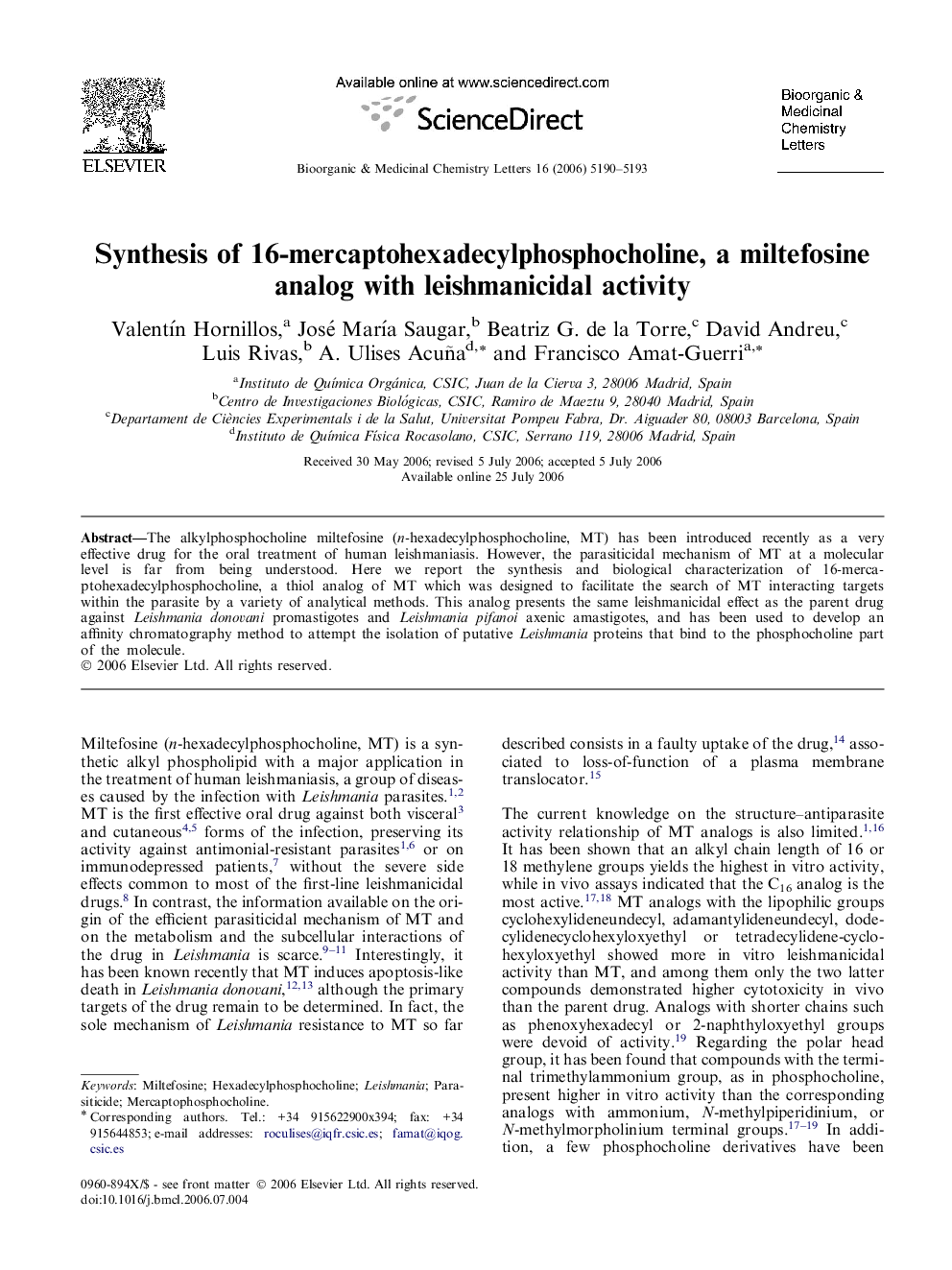| Article ID | Journal | Published Year | Pages | File Type |
|---|---|---|---|---|
| 1367387 | Bioorganic & Medicinal Chemistry Letters | 2006 | 4 Pages |
The alkylphosphocholine miltefosine (n-hexadecylphosphocholine, MT) has been introduced recently as a very effective drug for the oral treatment of human leishmaniasis. However, the parasiticidal mechanism of MT at a molecular level is far from being understood. Here we report the synthesis and biological characterization of 16-mercaptohexadecylphosphocholine, a thiol analog of MT which was designed to facilitate the search of MT interacting targets within the parasite by a variety of analytical methods. This analog presents the same leishmanicidal effect as the parent drug against Leishmania donovani promastigotes and Leishmania pifanoi axenic amastigotes, and has been used to develop an affinity chromatography method to attempt the isolation of putative Leishmania proteins that bind to the phosphocholine part of the molecule.
Graphical abstractA miltefosine analog capped with a versatile terminal mercapto group presents the same very high leishmanicidal activity as the parent drug, opening new ways for the study of the unknown antiparasite mechanism of alkylphospholipids.Figure optionsDownload full-size imageDownload as PowerPoint slide
